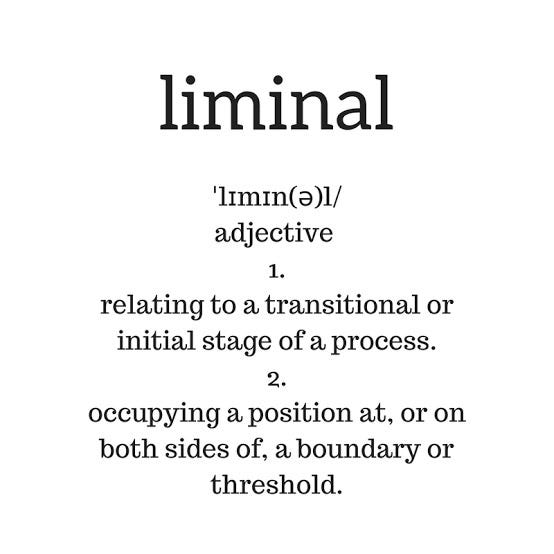What is your relationship with "Quitting"? From childhood, I seem to recollect this as a negative word, something about quitting is not good. "quitting is for losers" or “Successful people keep moving. They make mistakes, but they don’t quit.” is something I heard often. Quotes like these are the staple of a lot of motivational literature. We hear this while growing up & we see this in lots of popular media. You have films where the hero persists against all odds & wins. And yet, I have often wondered if quitting may be good for you. Is there an alternate worldview?
I have been a corporate executive & an entrepreneur. I am a cyclist, trekker & runner. And I have had more than my fair share of “quitting” through all these pursuits. Yet, I must say that my relationship with quitting has changed over the years. As I have grown, launched multiple ventures & run many marathons, I have begun to look more kindly towards the art of quitting. I realize I have also started to see quitters in a new light! I have become curious about my perspective on quitting & how it has changed over the years. Because we consciously choose to leave, it allows us to reframe & reassess the goals that we have pursued. It then allows us to articulate new goals that can enrich our lives.
I have realized that we see our world through filters that anchor us in a certain way of looking at things. Often, we ignore the biases that are at play that have created these filters. We have biases that encourage us to stay invested in something. We have a status quo bias, which creates a preference for the path that we're already on. Change can be scary for many people, so many prefer that things stay as they are. Quitting can create tremendous change in your life & your work.
Annie Duke knows a lot about quitting. She got good at it when she was a professional poker player with a record of over $4 million in prize money. Great poker players' key characteristic is knowing when to quit. They quit a lot more, so they're just very good at cutting their losses. But somehow, this philosophy doesn’t get promoted. Instead, there is this huge cultural affinity for those of us who grit it out and never give up.
Annie talks about the regret asymmetry bias and how it profoundly stops us from quitting. Anne says that we're very tolerant of the unhappiness that occurs while we continue to do something, and we're very intolerant of the unhappiness that might occur if we switch.
Words like steadfastness & perseverance were the superheroes while one was growing up. Our heroes are the ones who persevere beyond the point of physical or emotional well-being & chase challenging objectives till they are met. Parents would call out other children who persevered & stuck it out. Grit took the cake as this was of super excellent quality, and everyone celebrated. And it is incredible how we underestimate quitting. When you look at quitting, one of the synonyms for quitting is the word "coward." So culturally, as we become leaders in society, we are already programmed negatively towards quitting.
My interest in "quitting" was triggered when I met a few youngsters -Rutvij, Rahul & Sahil who told me they were quitting the education system after the 12th standard in school. I realized that it takes guts to do this & my respect for them went up. But I could not figure out why. If the word has negative implications, why was I impressed by Rahul, Rutvij & Sahil? What about the courage they showed that was triggering me & inspiring awe? It struck me that whenever we quit, we show "authenticity"; we allow something authentic within us to lead us down a certain path. Quitting is about being in touch with many more profound beliefs that will enable us to take that short-term call-in service of a longer-term gain. Being authentic is also about sharing this with other people who truly ‘see you”. Rahul & the gang have been working on many projects that they hope will help improve the education system. They are deep into these projects & doing stuff they could not have made enough time for had they continued their formal education.
I am aware that the questions I have asked myself have permanently changed whenever I have looked at life over a longer-term lens. How proud will I be of this decision, not tomorrow but maybe over the next 15 years gives us a very different perspective & we may answer the question very differently. I worked as the CMO of HDFC bank & the bank was well on its way to a massive bull run of its stock. I had decided to start a new venture & I had made up my mind to quit the bank. On my last day at the bank, I got my next round of stock options & it was HDFC bank stock. But when I put on the 15-year lens, it was not difficult for me to go ahead & quit the bank & start Cequity, which did well.
Jeff Bezos reportedly said that the easiest way to eliminate competition is by prolonging your time horizon of focus, as very few businessmen tend to think long-term.
To me, long-term thinking is about quitting. It is about leaving things that don't serve you for the long term, even if they serve you very well in the short term. I was in my second year of engineering & I wouldn't say I liked it. I knew that engineering was not for me. I was in a prestigious engineering college & quitting would not be an easy option. I still tried & got myself admitted to another college course with subjects I liked, Maths & Economics. But the idea of leaving Engineering & going and doing a BSc did not appeal to my dad & he succeeded in convincing me about it. I stayed on & became an engineer. Do I regret it, yes at times I do! I don't know which path I would have embarked on if I had quit my engineering & done my BSc instead. I think it is also essential to keep in mind that I was young then & going against a father figure who was a very successful person would have been difficult for me.
And yet, the most meaningful lesson I got was when I was running the Mumbai marathon many years ago. Running makes you strong mentally; you learn to stay the course. Many of life’s most significant learnings have come to me on the road. I still remember that Mumbai half marathon many years ago, when I pushed myself to a sub-2-hour. I reached Peddar Road and had a good time, but I was still behind my target timing. I started climbing the Pedder Road hill with another unknown runner on my side & just as I started to open my throttle on the hill; he said something that I now remember for life. He looked at me & said, “Stop fighting the hill”. His point was that go easy on the uphill & you will more than make up on the downhill. So quit pushing hard all the team, and be easy on yourself. What a metaphor it was for me & not just for running but for life itself! Be kinder to yourself, don’t fight the hill & you can still achieve your target. For the record, I did my first sub-2-hour run in that race & now whenever I am in a tough spot, I remind myself not to fight the hill. Quitting is a lot like “not fighting the hill.” You can stop & then come back with a roar.
I have run many marathons, but I remember vividly the New York marathon. I had never before run a marathon while still on antibiotics for an infection. The weather in New York was excellent & the best time to run! I started well, but the antibiotics had taken a toll & I struggled my way through it to eventually finish. I should have quit instead, where is the joy of running "on empty", but I was conditioned to "not quit". I wouldn't have let the alphabet DNF (did not finish) appear before my name in any marathon. And yet, I recognize this to be a limiting belief. I could have quit in the interest of my health & come back again & enjoyed this fantastic marathon another time.
I love to walk & trek in the Himalayas. Before Covid, I would do this every year. The Mountains are challenging & they ask a lot from us when we do long treks. And yes, I don’t recollect having left many treks halfway. But I remember one trek in Himachal Pradesh, where we got terrible weather. My daughter was five years old then & we were all wet with the rain & snow. We abandoned that trek halfway & went back to base camp. But I did feel bad about it! People forget that the mountaineer’s goal is not to reach the summit. The goal is to get back down safely to the mountain's base. We get wrapped up in the short term when we should consider the long term. What is going to make us happy?
And, of course, the myth is that entrepreneurs don’t quit. They go on with grit & perseverance till they are the talk of the town for their mythical success. Nothing could be further from the truth. Goo entrepreneurs fail & quit quite a lot. Pivoting is a sexy way of describing how an entrepreneur quits. There is this myth about quitting being something final. It’s important to realize that decisions are not final. And you can always change course midstream and often get back to choices you rejected. If we recognize this more, I think that we would be more exploratory, and it would make our outcomes better.
I quit Cequity 11 years after co-founding it & I knew I was doing it based on a simple reality-“when your vision for business & life with your co-founders doesn’t match, you quit.” It has been the best long-term decision of my life; it allowed me to explore new horizons & set new metrics for what one calls success. More about that here:
Walking away from my own company!
It was my last day as a Cequity employee, the company I had created in partnership with Swamy & Shekar of the Hansa group. Leaving something is always challenging. When you have created something from scratch, you can’t leave the baby behind & walk away. And yet I chose to do it quietly, conscious about my commitment to investors & clients. So I faded a…
So, what are you quitting in the year 2024?






Very well written. I have been playing this concept over and over in my head for the last 2 decades. It makes so much more sense now. Thank you.
That quitting has a negative connotation is spot on, thanks in no small measure to popular and mainstream media. It is also a reflection of the times. Our parents grew up in single-job careers. They had probably 10% of the jobs (= options) available today. Quitting at a time of scarcity didn't seem like a good strategy. Times have changed and this old belief in persistence is counterproductive. The metric I try and think of is opportunity cost. What am I giving up by sticking on?
The other contextual thing is there's a difference between quitting a cause and a means to that cause. If we believe in a vision, quitting involves leaving one means to it for another, possibly better one. If we're unsure about what truly moves us, it makes sense to quit not just the means but the end should we discover it does not and cannot energize us.
Lovely post, thanks.